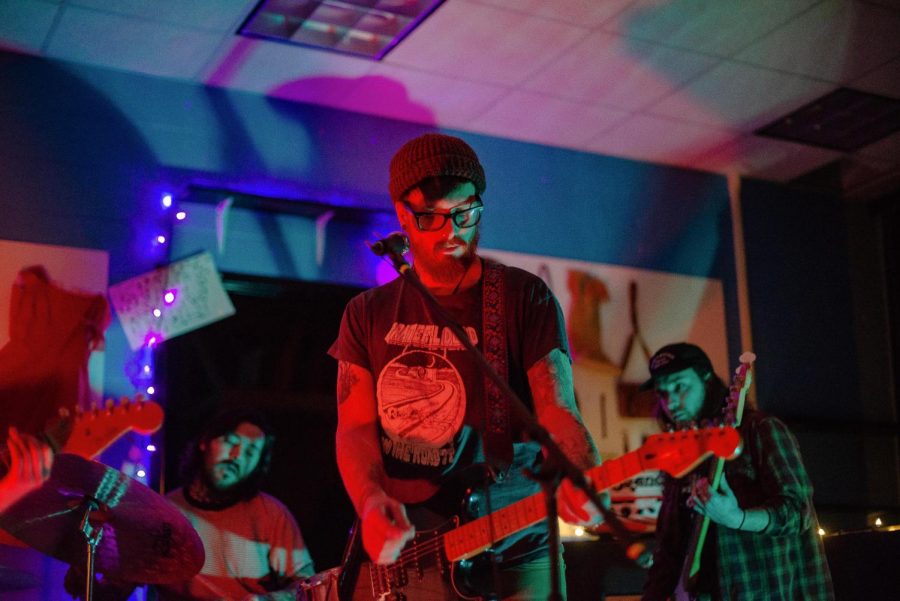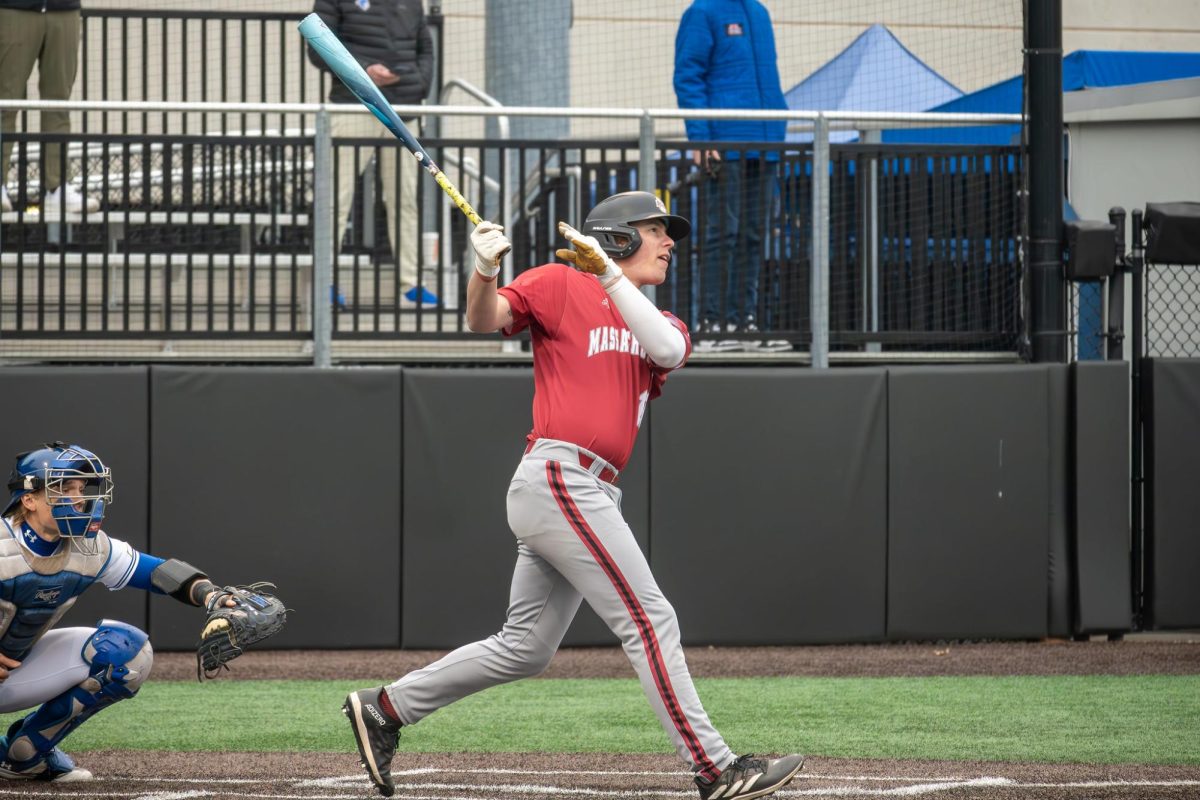In the short months since COVID-19 spread to the United States, few institutions have been left untouched. Schools, workplaces and restaurants have shut down. The way we operate has shifted; the way we view the world and one another will never be the same. It has always been human nature to adapt to our environment, but what does this mean when it comes to our sense of community?
“Live music creates a moment of shared energy between everyone in the room. When listening to digital music you can hear an artist and understand them, possibly even connect with them, but you don’t get the same energy out of it,” said Jeffrey Polidor, a University of Massachusetts graduate. Polidor is also the guitarist for the band Alright, Thanks.
Polidor understands the full importance of an engaged crowd and a lively atmosphere. Alright, Thanks has put on many shows in the same basement in Sandwich where they started out, some of which I have had the pleasure of attending.
Polidor recalls one of his favorite shows that he played starting in his friends’ driveway and ending in an undisclosed lecture hall.
“We were supposed to be the last of three bands playing outside on a Friday night, but noise complaints flooded in and the show was shut down,” he said. “Luckily, we knew of a certain academic building on campus with a set of doors that were too old for the electronic locking system and we were able to crowd fund the moving of gear from Sunset Ave. to a UMass lecture hall.”
It was a night that was never planned, but it brought unlikely people together in an unlikely location. That’s what music is all about for Polidor: that human connection.
“Live performances provide artists with a voice to speak to their audience and they provide the audience with the opportunity to listen to the artist and reflect their feelings back,” Polidor said.
This shared energy can’t be duplicated within the four crumbling walls of a dorm room with a muffled speaker. It is something that a person can only understand if they have been in a packed crowd of bodies, swaying side to side from a booming bass so loud you can feel it in your fingertips. It is something one can only understand if they have been put in a trance by the hypnotizing visuals projected on the screen behind their favorite artists, who seem like an old, long-lost friend.
“Music loses its humanity when live shows are no longer possible; it’s easy to forget that a real, living person put their energy into a song or album that you love,” said University of Vermont junior Amelia Guarino. “Being in a crowd of people that you share a common love for an artist with is such a good feeling. It makes you feel like you’re part of something bigger than yourself. You can let yourself get lost in the music and the crowd for a couple hours. It’s like therapy. It’s like a religion.”
Guarino has been an avid concert-goer since she was thirteen and has seen artists ranging from Bad Suns to Rico Nasty. Her favorite live show was a Shoreline Mafia concert she attended during her freshman year of college.
Guarino’s friend group was pretty new at the time and they were not very close yet. She recalls the show bonding them together and being a shared experience they could talk about for years after.
“I’m really grateful that a concert can do that for a friend group,” said Guarino. “I didn’t even really know about Shoreline [Mafia] before the concert, but now my friends and I think of them as our go to artist to put on when we’re together and it always makes us reminisce on the concert and remember how much fun we had.”
Polidor agrees that there is a certain sense of bonding and community when it comes to live shows that is impossible to replicate in a digital era. Yet has found artists and their supporters are doing a good job in trying to fill that space in any way they can.
“There’s been a bit of that ‘you don’t know what you have until it’s gone’ feeling with live music,” Polidor said. “Over the last few months there’s been a lot of artists and bands live streaming and raising funds for charities, which isn’t necessarily abnormal, but I think you see more of it lately.”
While there has been a period of adjustment for artists and audience members, they aren’t the only ones at a loss without live shows.
Southern Connecticut State University senior Noel Díaz is a concert photographer, and while he continues to shoot portraits during the pandemic, he remarked that the energy merely isn’t the same.
“During live shows, not only am I taking pictures of the artist, but I’m engaging with them, I’m providing something for other people to see as well through my lens,” Díaz said. “I’m big on energy, and if you photograph a certain moment like the artist throwing water, you capture that energy through the pictures.”
As a concert photographer, Díaz is constantly around different artists in different cities. While live music itself is an experience Díaz missed deeply, his longing lies more in the lessons he’s taken away from the different people he has met.
“Artists are regular people just like us at the end of the day,” Díaz said. “I just think it’s cool how much of an impact they have in the world, it’s actually life changing. It’s all about that connection. I mean that’s why you’re a fan of them, right? Because you can relate to them— you can feel them.”
The pandemic does not appear to be slowing down anytime soon, meaning the live shows we hold so near and dear will not be making a return in the near future, but their significance cannot be erased.
“Music is a career, a passion or a hobby for a huge group of people. It encapsulates so many different facets of life for different folks, but none of them exclude each other from existing,” said Polidor. “Live shows allow the townies to play cover sets at a pub, the same way that they allow college kids to chase their dreams on a small stage, the same way they allow Beyoncé to sell out Gillette three nights in a row. It doesn’t matter which side of the stage you’re on; live music can be a piece of your life.”
Astghik Dion can be reached at [email protected].




















